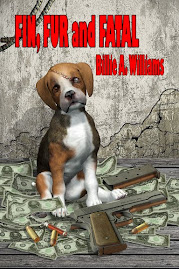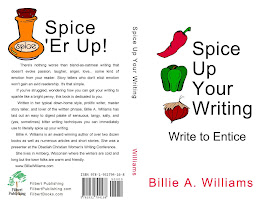

Hi Jordan,
I'm so delighted you decided to stop at Printed Words on your blog tour. I am extremely excited about your up coming book No One Heard Her Scream The title alone is enough to send shivers up my spine.
Let's pretend you are in my living room enjoying a cup of tea. We'll get cozy in front of the fire place and chat like old friends if you don't mind.
Billie: Can you tell us what you think is the one mental characteristic necessary to craft a believable suspenseful tale like No One Heard Her Scream?
Jordan - Good question. And my first response is that the author has to be willing to look into the deviant mind and convey that criminal element to the reader with the right amount of finesse not to turn them off. It’s sometimes a fine line we tread. When I get to those moments of portraying the victim’s story, I put myself into every moment as if it’s real time, not skimping a thing. I’ve heard it said that writers should write what they know. But recently, I read an email from author Lee Child that advised—write what you fear. I love that.
Billie: What will I like about your heroine?
Jordan - I particularly admire law enforcement types. Can you imagine what courage it takes to hear a gunshot and race toward it instead of cowering away in fear? I wanted to portray a courageous heroine haunted by the violent death of her sister while still trying to carry on with her homicide job and dealing with other victims’ families. Becca Montgomery is intelligent, strong and funny with plenty of street smarts—my “girl next door” with a gun. She’s got savvy instincts when it comes to men and great taste in Mexican food and single-malt scotch.
Billie:If you could have written any of the books out there by other authors, which one would you pick?
Jordan – The way this question is phrased, it implies that I might be envious of someone else’s work. I never see a brilliant piece of work and wish I’d written it. I take great pleasure in reading it and celebrate the author’s talent. And being an avid reader, I spread the word. My biggest competition is not other authors. It’s within me.
Billie: Thank you for that answer Jordan. I didn't really mean that you would wish to have written that person's book, just what author has a style that you really would like to emulate or that has helped you in your writing, but what they have written. So I guess the question should be--what author do you admire - or who do you see yourself as writing like?
To answer the question on a top pick, however, I’d say there are too many good books out there to pick only one. But if pressed, I’d have to say that Robert Crais’ Forgotten Man and LA Requiem rank high on my list. I had never seen my style in other author’s work until I read Crais. And it’s not that I see me comparable to him, but that I see where I’d like to be. He pours his soul into his Elvis Cole PI series based in Los Angeles and he does it with humor. I like that. And whenever he adds a little romance to the mix, I’m in heaven.
Billie: How do you refill your energy well? What do you do besides writing that brings you joy?
Jordan- Right now, I’m very focused on my work and busy writing my next romantic thriller series – Sweet Justice. I do enjoy writing full time and get jazzed by the worlds I build on paper. Getting this much attention for my work as a debut author has been a dream come true. Outside of my writing, I love my home and my life with my dear sweet husband. And I love traveling. When I worked with the energy industry, I lived in Texas, California, Alaska (for 10 years), Wisconsin, and now Oklahoma. And I also can be considered a fish wrangler. We’re raising baby Koi and have a beautiful pond in my backyard. Who knew baby fish faces could be so cute? And being home writing these days, I am rediscovering the idiosyncrasies of our two cats and our sweet old dog.
Billie: I'm thrilled to hear you lived in Wisconsin because that is where I have spent most of my life. I always like to hear about the “behind the scenes” of a title and I am sure my readers would like to hear this too. Tell us a bit about the “behind the scenes” of No One Heard Her Scream. For instance, what was the catalyst that prompted you to write this book? Is the book loosely based upon any happenings in your own life, or anyone you know?
Jordan - The title NO ONE HEARD HER SCREAM actually came from a dialogue line, an exchange between my homicide detective Becca and her CSI tech when she examines the skeletal remains of a young girl. She realizes from the evidence that the girl was buried alive. I never had to change that title. And all the houses involved in the auction when I sold loved it too. Once I had that title, however, the other books needed to be tweaked to fit the “No One” series. Those titles now reflect actual lines of dialogue from the individual stories. I read an Elizabeth Lowell book – The Color of Death – where she did that and I liked the idea.
And elements of real crime usually influence my writing. I’ve got a Q&A on my site that gives more on this, but aspects of the Natalee Holloway abduction case in Aruba and a personal story (told to me by a friend whose sister was murdered) also became the emotional underpinnings to my debut story.
Billie: How would you describe your creative process while writing this novel? Was it stream-of-consciousness writing, or did you first write an outline? How long did it take you to write it?
Jordan- I’m not a plotter. I’ve tried to be better organized, but I’m impatient and prefer to start any book by thinking about the major plot points, like those mentioned in the 9-Act Structure for Screenplays under my FOR WRITERS page on my website. I let my mind dwell and work the plot points, get them set in my head, and then I dive in writing. I don’t fret about how to connect the dots. I work out my transitions as I go, exploring the best way to tell the story. No outline. My ideas have all been instigated from real crime stories—my take on them—and sometimes more than one crime will be meshed together. I love a challenge.
I see books unfold in my head like watching a movie. Sometimes characters get me up in the middle of the night. I have pens and paper all over the house and I use them when this happens. I’ve got more of my process and craft on my website under the For Writers page – check out my Start with a BANG article. And my FIRST SALE story is there too. (Author Sharon Sala played a big part in how I sold. You’ll want to read about it. She’s an amazing woman.)
I like to say that I sacrificed a body part for my first novel. And I wrote most of it in six weeks while I was home on medical leave from major surgery. Once my brain worked out this complex plot, it poured from me. I was writing three chapters a week, fully edited. But when I was done, I knew I had something special. My characters had shared their story, allowing me to be their scribe.
Billie: How was your experience in looking for a publisher? What words of advice would you offer those novice authors who are in search of one?
Jordan – To get noticed and network, I did a number of things. I’m a recovering contest diva and I went to various conferences from nationals to locals. I pitched to agents/editors, was a finalist in the Golden Heart in 2005 and sent out many proposals. I’ve received countless rejections too, including a couple from my current agent, the amazing Meredith Bernstein. I think it’s important to find a good agent to get an author exposed to a broader range of publishing houses that might best fit their future career. (It’s a harder goal to achieve than landing a contract with a publishing house since an agent is looking for a client with career prospects and future books in them. But it’s a goal worth pursuing.)
I had five full manuscripts out from RWA contests, a pending contract with one publisher for virtually no advance (on my second book in the series), and I had turned down the first agent who offered representation. In hindsight, there were so many roads I could have taken, but I’m very thankful I stayed the course—believing in my work and where I wanted to be. I often tell people that landing a contract with Avon HarperCollins in auction was equivalent to being struck by lightening.
When it came time to stir up an auction, my agent got me into 6-7 new houses that had not seen my work before. And this all happened over a ten-day period via email and phone calls—a real whirlwind that I’ll never forget. Looking back, it all seemed like I knew what I was doing, but that definitely wasn’t true. Luck and opportunity played a part.
And now that I’m on the greener side of the pasture, I’ve learned so much about print runs, marketing campaigns, author promotion, etc. But in the end, the author’s main goal is to write the best book they know how to do. And that’s good advice for all of us.
Billie: Jordan thank you so much for taking the time from your busy schedule to chat with us today - I can't tell you what a pleasure it has been to visit with you. Please come back when your next two books are released. We'll invite everyone to come join us. We can visit your website in the mean time and keep an eye on what you are doing at http://www.Jordandane.com















